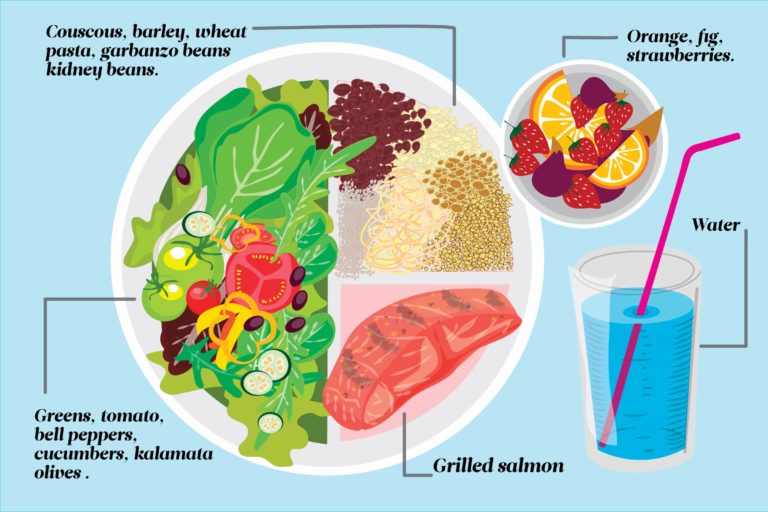The Mediterranean diet is a food pattern that is complemented by the practice of physical exercise and the climate of the countries bordering the Mediterranean Sea, and that has multiple health benefits.
In terms of food, the Mediterranean diet is based on the ingredients of local agriculture in countries with a Mediterranean climate, mainly Spain and Italy. It is summarized in reducing the consumption of meats and carbohydrates for the benefit of more plant foods and monounsaturated fats.
Among the recommended ingredients are vegetables and legumes, fruit, fish, white meat, pasta, rice, and nuts, in addition to the consumption of wine in moderation. Another of the most recommended products is olive oil, which thanks to oleic acid and its fats of vegetable origin decreases the risk of obstructing the arteries, and has a high content of carotenes and vitamin E.
The Mediterranean diet promotes consumption of olive oil against other types of oil and especially against butter. In this food pattern, there is a scarcity of products such as red meats, sweets, and eggs.
Benefits
Eating lots of fruits, fiber and vegetables have a lot of health benefits. Here we mention which are the most striking:
Prevents type II diabetes: it is rich in fibers. This causes the digestion to delay and prevent drastic changes in blood sugar.
Reduces the risk of heart problems: the Mediterranean diet consists of eliminating processed foods, red meat, and refined flours. This diet not only helps you lose weight, protects the heart and prevents heart problems.
Less chance of suffering from Parkinson’s disease: being high in antioxidants, this diet prevents the oxidation of cells and decreases the risk of suffering from this disease.
It protects the cerebral deterioration that causes Alzheimer’s: although the cause of Alzheimer’s is not known with exactitude, it is known that it is related to diabetes and high levels of cholesterol in the blood, this diet keeps these possible causes away.
It keeps you young: a balanced diet like this will not only help you lose weight, it will also keep you healthy and young. The monitoring of the Mediterranean diet, in addition to helping control weight and increase the sense of physical well-being, improve the functioning of various organs, such as the kidney and the heart. It has also been found that the death rate from cancer is lower among those who practice it than in the countries of northern Europe or America, which tend to abuse more of fast food, precooked foods, and fats.
This food pattern, which has been transmitted from generation to generation over several centuries in the Mediterranean regions, has evolved and welcomed new foods and ways of preparation, but maintains the properties and characteristics that make it a model of living healthy, and that people of all ages and conditions can practice.
The products are easy to obtain and prepare, and there are countless recipes, both simple and more elaborate, with which to get the most out of this diet. In addition, its importance in the welfare of individuals is not limited to the fact that it is a varied, healthy and balanced diet; also keep in mind that its low content of saturated fats and sugars, and its abundance of vitamins and fiber contribute to its richness in antioxidants.
Mediterranean Diet Risks
Despite its advantages, strictly following the Mediterranean diet can reduce iron and calcium levels by consuming less meat and dairy products. Therefore, you can consult the doctor if you have to take a supplement or a specific product rich in these minerals. As for wine, it is recommended that it be taken during meals and always in moderation, but it is not essential, so it can be suppressed if its intake poses a risk to health.

